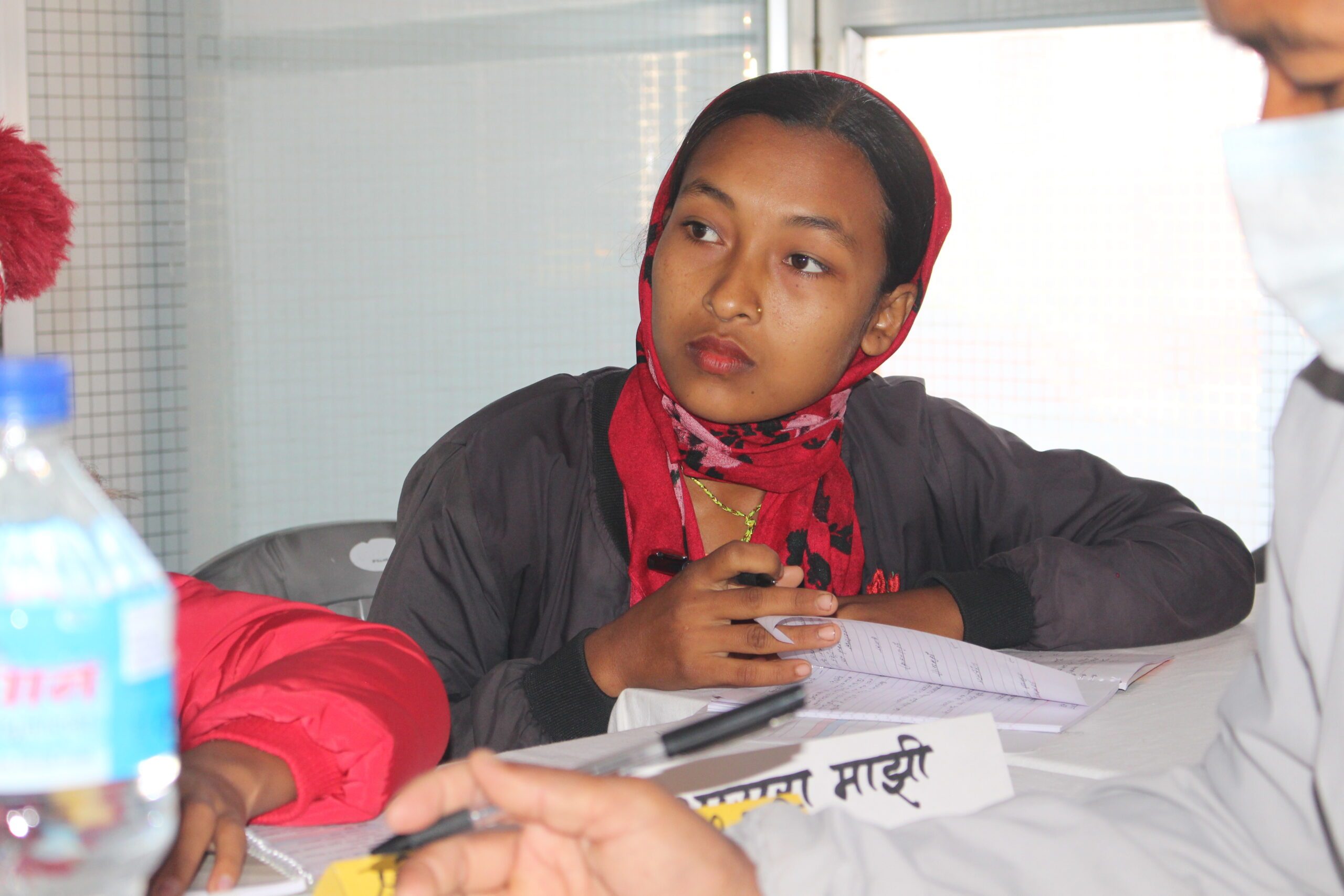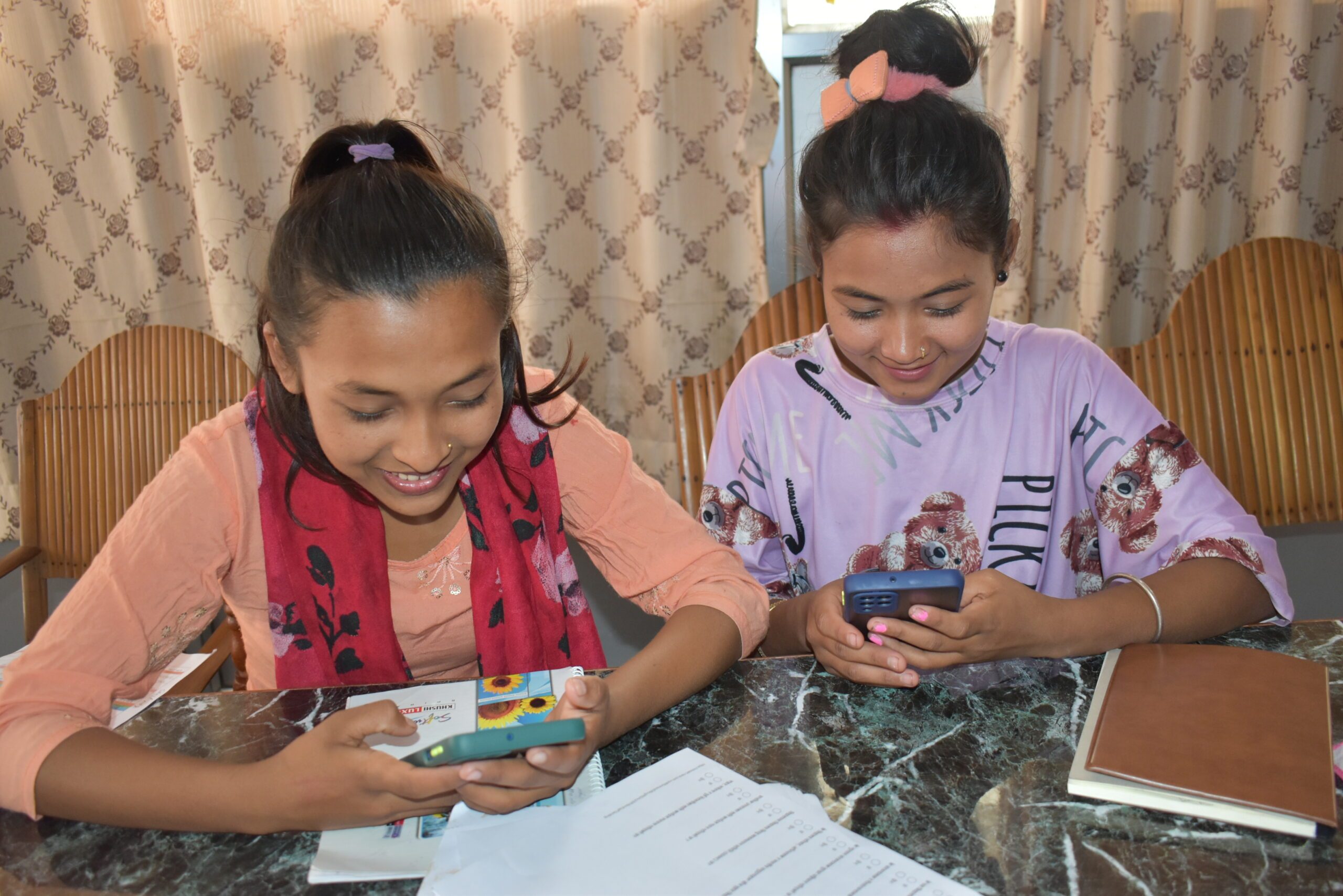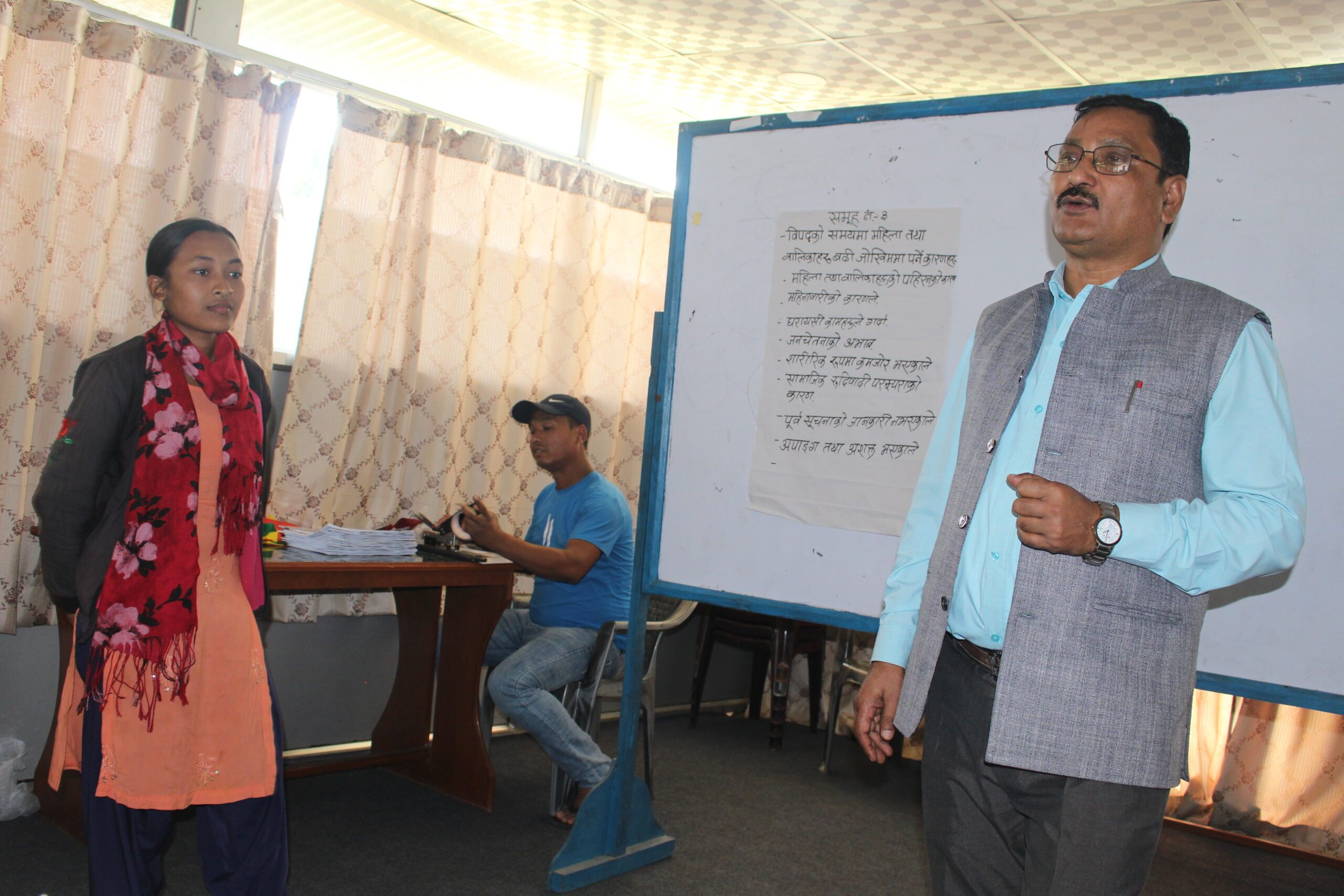Meet the girl keeping her community safe from disasters in Nepal
Although Nirmala, 17, is from a marginalised community, she has learned leadership skills and is taking the lead on preparing her community for disasters.

“I aspire to work on the impacts of disaster risk reduction on my community’s children, especially girls, so that I can contribute to my society. It is also a way of giving back for what I have received.”
Nirmala, 17 years old
Nirmala, a 17-year-old girl, lives in Sindhuli district, Nepal. There are 6 members in her family, making a living primarily through agriculture. Her family belongs to a Dalit community who are considered untouchable. They are deprived of even basic facilities, her parents only had basic education, but they managed to send Nirmala and her siblings to school. Nirmala continued her education by staying in the home of her married sister. Currently, she is studying in grade 11 at a secondary school in Sindhuli.
Living near the bank of the Kamala River, she has witnessed loss and damage from multi-hazards in her community since her childhood. Every year during the rain season, there are ever-present floods, forest fires, wild animal attacks, thunderstorms, and drought.
Despite this, Nirmala is an active member of her school child club. A few months back, Nirmala and other student representatives attended a training workshop on gender-responsive disaster risk reduction (DRR) and climate change adaptation (CCA). Now as a School Safety Champion, she’s leading the DRR/CCA activities at her school and beyond.
Empowerment through disaster risk reduction training
“The training helped me to gain a better understanding of disasters, risks, and how to reduce them. I also learned about climate change and gender issues. I have seen several disasters in my community, however I was unaware of precaution, preparation, and safe behavior before and during the disaster. After getting an opportunity to take part in the DRR/CCA training, I have come to know about disasters, the importance of preparedness and small initiatives that could be taken by the students and at the household level, and awareness raising for disaster risk reduction. The training was quite adolescent-friendly and there were equal numbers of girls and female mentors” – said Nirmala.
After the training, Nirmala also became chairperson of a local youth forum working on adolescent rights, protection, child and early forced marriage, and the water and sanitation programme in the municipality. She has also shared what she has learned about safe schools, and DRR/CCA and gender in the forum and in meetings and peer sessions in her school and community. She has been playing a crucial role in conducting extra-curricular activities and learning sessions at another school too.
“I enjoy watching my juniors having fun while playing DRR games. In this game, we give them 3 different colours and ask them to recognise danger and safety based on colour. We also give prizes to the fastest children. They feel so happy receiving a prize and enjoy the game. We are organising different types of extracurricular activities based on the classes and age. Similarly, we also conduct musical chair games with younger children. Children prefer to learn by playing,” shared Nirmala.
Taking action to reduce risks

She is also involved as an enumerator for a Multi-Hazard Risk Assessment (MHRA) for 9 schools. MHRA is a mobile application for multi-hazard risk assessment of schools that was developed by the Gender Responsive School and Community Safety Initiative. She received training to use the apps. She said: “The training equipped me with technology and provided me the practical knowledge to collect information about the schools that are safe or at risk of disaster. I have gathered and uploaded information about 8 schools in the app. This has built my self-confidence a lot.”
Nirmala has become an active agent of change in her community. She has been an ambassador for disaster management and preparedness along with safe schools and gender issues. “The trainings and different platforms that I have been participating in have helped me to present myself confidently. Now I can proudly speak up and I am able to convey my points to different audiences. I think positively now and see opportunities to do something for change despite contexts. I aspire to work on the impacts of disaster risk reduction on my community’s children, especially girls, so that I can contribute to my society. It is also a way of giving back for what I have received.” says Nirmala.

Gender Responsive School and Community Initiative (GRSCSI): Plan International’s project which supports schools and communities to be better prepared for disasters using the Safe School Comprehensive Framework, and supporting youth-led initiatives by the School Safety Champions through gender-sensitive DRR/CCA trainings and the Multi-Hazard Risk Assessment (MHRA) mobile app.
Categories: Education, Emergencies


